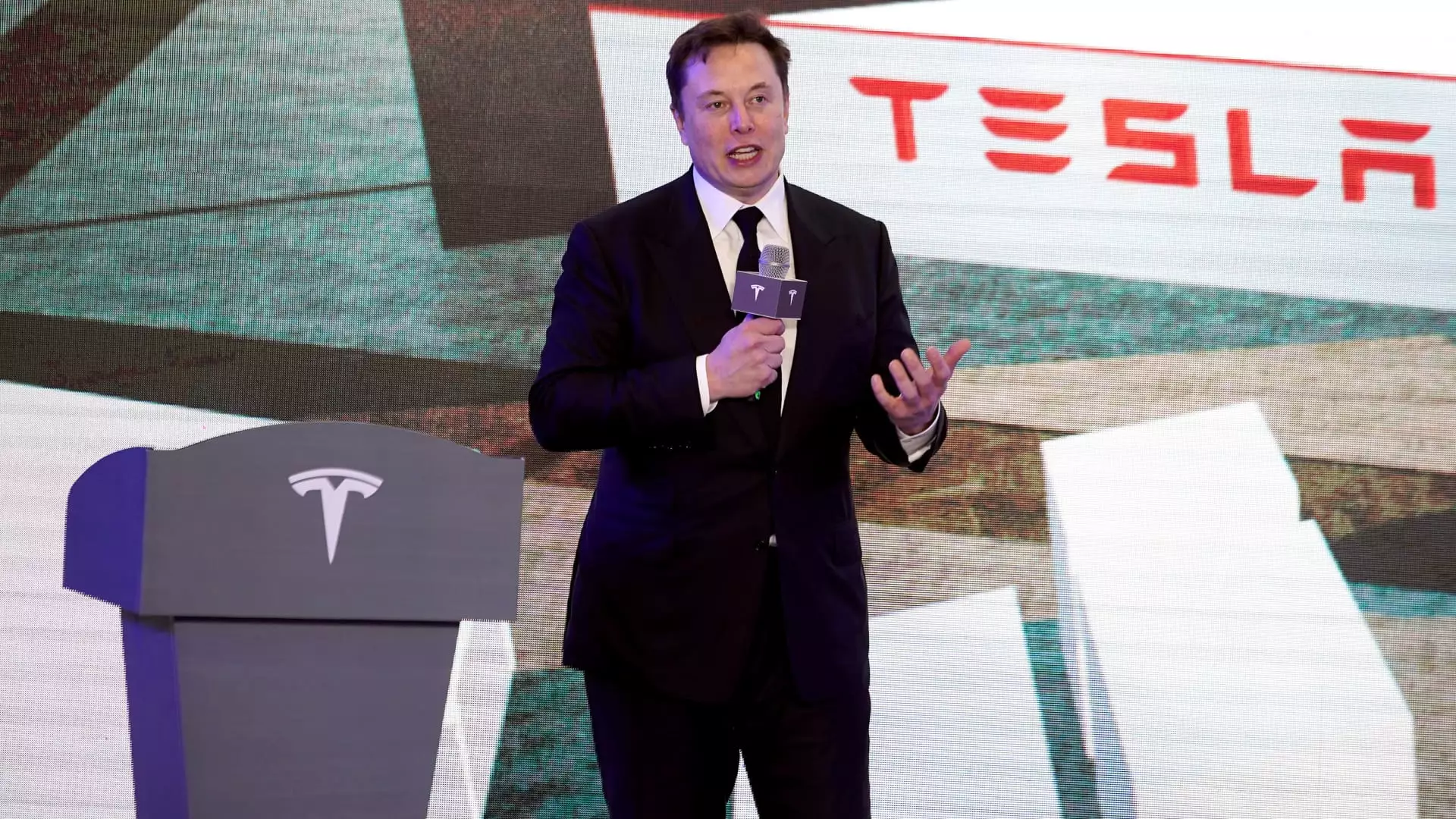In a bold move that has raised eyebrows across the corporate governance landscape, Tesla, under the leadership of Elon Musk, has revised its bylaws to impose a 3% ownership threshold for shareholders wishing to sue the company for alleged fiduciary breaches. This change, purportedly effective from May 15, is seen as a strategic maneuver to mitigate potential legal challenges from shareholders, especially given the company’s soaring market capitalization exceeding $1 trillion. With a 3% stake now equivalent to over $30 billion in Tesla’s shares, this new barrier effectively complicates the legal landscape for individual shareholders, revealing an intriguing interplay between corporate governance and investor rights.
Legal Maneuvering in Texas
The bylaw amendment cleverly capitalizes on Texas state law, which allows companies to restrict shareholder lawsuits under specific circumstances. Ann Lipton, a corporate and securities law expert, noted that this law permits corporations like Tesla, which is Texas-based, to enforce significant ownership stakes as prerequisites for initiating or maintaining lawsuits. Such strategic positioning raises critical questions about the balance of power between a company’s management and its shareholders. As a professor at Tulane Law School, Lipton highlighted this development, underscoring how it serves as a formidable obstacle to those shareholders who might feel compelled to challenge the decisions of the executives or board.
A stark comparison to this current situation can be drawn from Tesla’s previous incorporation in Delaware. In the past, Tesla faced shareholder actions with considerably lower stakes; a situation exemplified by Richard Tornetta, who held just nine shares and succeeded in leading proceedings that resulted in a court-ordered restructuring of Musk’s 2018 compensation package. This precedent showcases an environment where shareholder voices, regardless of their investment size, could bring boards to account for their decisions. The shift from Delaware to Texas marks a significant departure from that ethos of stronger accountability toward shareholders.
The Impact on Accountability and Governance
Musk’s philosophy of corporate governance has always seemed to lean towards prioritizing shareholder value while simultaneously cultivating an image of audacious entrepreneurship. However, these recent bylaw changes beg the question—does this approach prioritize empowerment, or does it merely insulate corporate executives from accountability? The repercussions of limiting litigation rights reflect a troubling trend where shareholder rights could be undermined under the guise of promoting a more “efficient” corporate environment.
The Tornetta case serves as a powerful reminder of how even minor shareholders can exert influence over corporate governance, highlighting the vital role these stakeholders play in upholding ethical standards within management. By raising the stakes, Tesla seems to be erecting a shield around its executives, possibly at the expense of overall governance quality. Critics could view this as an erosion of shareholder democracy, a rallying point for those advocating for a more equitable distribution of power within the corporate hierarchy.
Legal Precedents and Future Implications
As Tesla navigates this complex legal landscape, the outcomes of its appeal against the Tornetta verdict loom large. Should the Delaware Supreme Court side with Musk, affirming the validity of his 2018 compensation package, it could bolster investors’ concerns regarding executive accountability. Conversely, a ruling against Musk might illuminate pathways for shareholders to contest corporate governance decisions, setting vital precedents for corporate accountability moving forward.
These evolving dynamics place Tesla in a unique position; its decisions resonate beyond its immediate business implications and strike chords across the broader corporate governance realm. With innovative bylaws that curb shareholder litigiousness, the company walks a delicate tightrope between asserting control and adhering to ethical standards that govern corporate behavior.
Ultimately, while Tesla continues to set benchmarks for innovation and growth, one must reflect critically on the implications of policies that prioritize corporate protectionism over the foundational principles of trust and accountability that should characterize shareholder relations. As these issues develop, the corporate world will be watching closely, mindful of the precedent that Tesla’s decisions will likely set in shaping the future of shareholder rights and corporate responsibility.


Leave a Reply